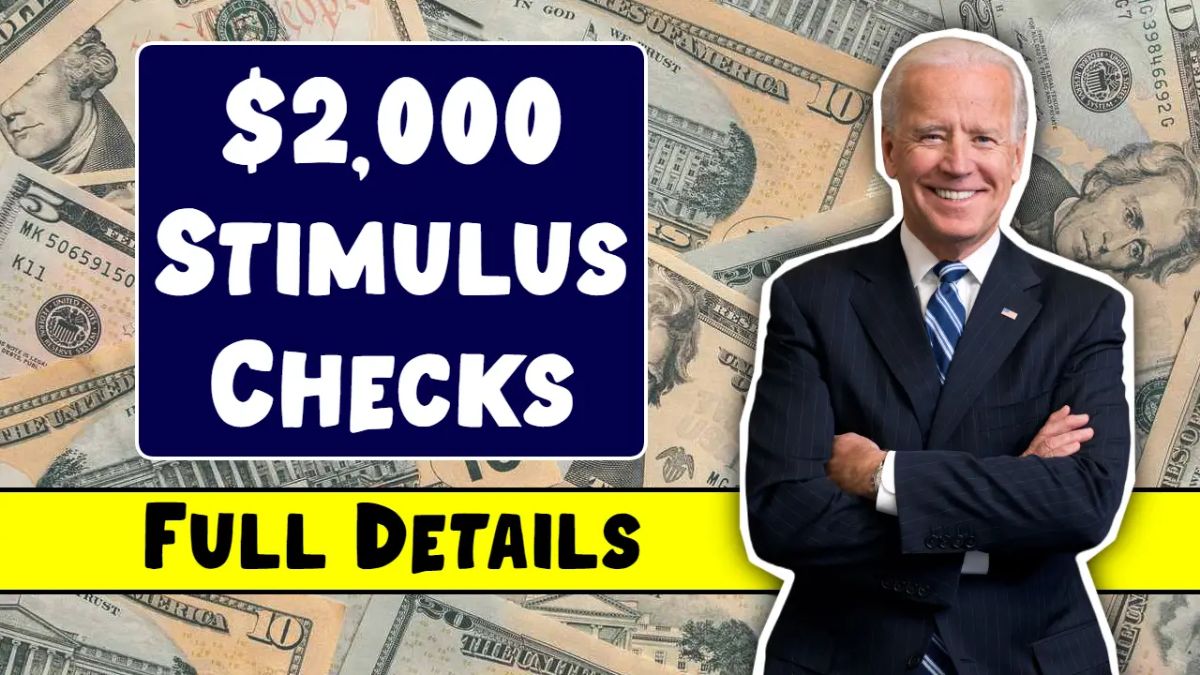$2,000 Stimulus Checks 2024: In recent months, a rumor has been circulating widely about a potential $2,000 stimulus check for seniors in 2024. This claim has gained significant traction, especially among older Americans who are struggling with the rising cost of living. However, it’s crucial to understand that there is absolutely no evidence to support this claim. Let’s dive deeper into this rumor, its origins, and the actual financial support available for seniors in the United States.
The Origin of the $2,000 Stimulus Check Rumor
The speculation about a $2,000 stimulus check for seniors in 2024 seems to have originated from unreliable sources on social media and various websites. These false reports often include specific details, such as payment dates for June, July, and the remainder of 2024, to make the claims appear more credible. However, it’s important to note that these dates have no connection to any official schedules from the Internal Revenue Service (IRS) or the Social Security Administration (SSA).
It’s understandable why this rumor has spread so quickly. Many seniors are facing financial difficulties due to inflation and increasing living costs. The prospect of additional financial support is naturally appealing, which makes people more likely to believe and share such information without verifying its authenticity.
The Reality: No Official Plans for a $2,000 Stimulus Check
Despite the widespread circulation of this rumor, neither the Social Security Administration nor the Internal Revenue Service has made any formal statements regarding a $2,000 stimulus check for seniors in 2024. In fact, there are currently no discussions or proposals in Congress for a new stimulus payment of this magnitude targeted specifically at older Americans.
It’s worth remembering that during the height of the COVID-19 pandemic, the United States government did issue several rounds of stimulus checks to help alleviate financial burdens. However, these were extraordinary measures taken during a global crisis. As the country continues to recover from the pandemic, the likelihood of additional large-scale stimulus payments becomes increasingly slim.
Why the $2,000 Check is Unlikely in 2024
There are several reasons why a $2,000 stimulus check for seniors is improbable in 2024:
- Lack of Congressional Action: Currently, there are no ongoing debates or proposals in Congress for such a payment. Given the complex process of passing legislation, it’s highly unlikely that a significant stimulus package could be approved without substantial public discussion and media coverage.
- Budget Considerations: Large-scale stimulus payments have significant impacts on the federal budget. With concerns about national debt and inflation, policymakers are less likely to propose such measures outside of dire economic circumstances.
- Targeted Approach to Aid: Instead of broad stimulus payments, current policy trends favor more targeted approaches to financial assistance, focusing on specific needs and demographics.
- Economic Recovery: As the economy continues to recover from the pandemic, the justification for large-scale stimulus becomes less compelling to policymakers.
Actual Financial Support Programs for Seniors
While the $2,000 stimulus check may be a myth, there are legitimate financial support programs available to seniors in the United States:
- Social Security Cost-of-Living Adjustments (COLA): The Social Security Administration provides annual adjustments to benefits to help keep pace with inflation. While these increases are typically modest, they do offer some protection against rising costs.
- Supplemental Security Income (SSI): This federal program provides monthly payments to adults and children with disabilities or blindness who have income and resources below specific financial limits.
- Medicare: This federal health insurance program for people who are 65 or older, certain younger people with disabilities, and people with End-Stage Renal Disease provides crucial health coverage.
- Medicaid: For seniors with limited income and resources, Medicaid can provide additional health coverage beyond Medicare, including long-term care services.
- Supplemental Nutrition Assistance Program (SNAP): Formerly known as food stamps, this program helps low-income seniors purchase nutritious food.
- Low Income Home Energy Assistance Program (LIHEAP): This program can help eligible seniors with their home energy bills.
These programs, while not as dramatic as a one-time $2,000 payment, provide ongoing support to help seniors manage their living expenses.
The Importance of Reliable Information
The spread of the $2,000 stimulus check rumor highlights the critical need for reliable information sources, especially when it comes to financial matters. Here are some tips for seniors and their families to stay accurately informed:
- Verify Information: Always cross-check information with official government websites like ssa.gov (Social Security Administration) or irs.gov (Internal Revenue Service).
- Be Skeptical of Social Media Claims: Treat financial news on social media with caution, especially if it seems too good to be true.
- Follow Reputable News Sources: Rely on well-established news organizations for updates on government programs and policies.
- Consult Financial Advisors: When in doubt about financial matters, consult with a qualified financial advisor or counselor.
- Stay Informed About Existing Programs: Regularly check for updates on current benefit programs you’re enrolled in or might be eligible for.
The Impact of Misinformation
The circulation of false information about a $2,000 stimulus check can have several negative consequences:
- False Hope: It can create unrealistic expectations among seniors who are struggling financially, leading to disappointment and frustration.
- Financial Planning Issues: Some seniors might delay important financial decisions in anticipation of a large payment that will never arrive.
- Scams: Unscrupulous individuals might use this rumor as a basis for scams targeting vulnerable seniors.
- Distrust in Government: When expected benefits don’t materialize, it can lead to increased distrust in government institutions and programs.
Conclusion
While the idea of a $2,000 stimulus check for seniors in 2024 may be appealing, especially given the current economic challenges many older Americans face, it’s important to recognize that this is simply a rumor with no basis in fact. There are no official plans or proposals for such a payment from any government agency or legislative body.
Instead of relying on unverified rumors, seniors should focus on understanding and utilizing the legitimate support programs available to them. These include annual Social Security COLAs, Medicare, Medicaid, SSI, and various other federal and state assistance programs. While these may not provide the immediate, large-scale relief that a $2,000 check would, they offer ongoing support designed to help seniors manage their living expenses over time.
It’s crucial for seniors and their families to stay informed about these programs and any potential changes or updates. This can be done by regularly checking official government websites, consulting with financial advisors, and following reputable news sources.
The spread of misinformation like the $2,000 stimulus check rumor serves as a reminder of the importance of critical thinking and fact-checking in the digital age. By being vigilant and skeptical of unverified claims, especially those related to financial matters, seniors can protect themselves from disappointment, potential scams, and misguided financial decisions.
Ultimately, while the economic challenges facing many seniors are real and significant, the solution lies not in false hopes of large stimulus checks, but in understanding and maximizing the benefits of existing programs, advocating for policy changes that address senior poverty, and making informed financial decisions based on accurate information.







